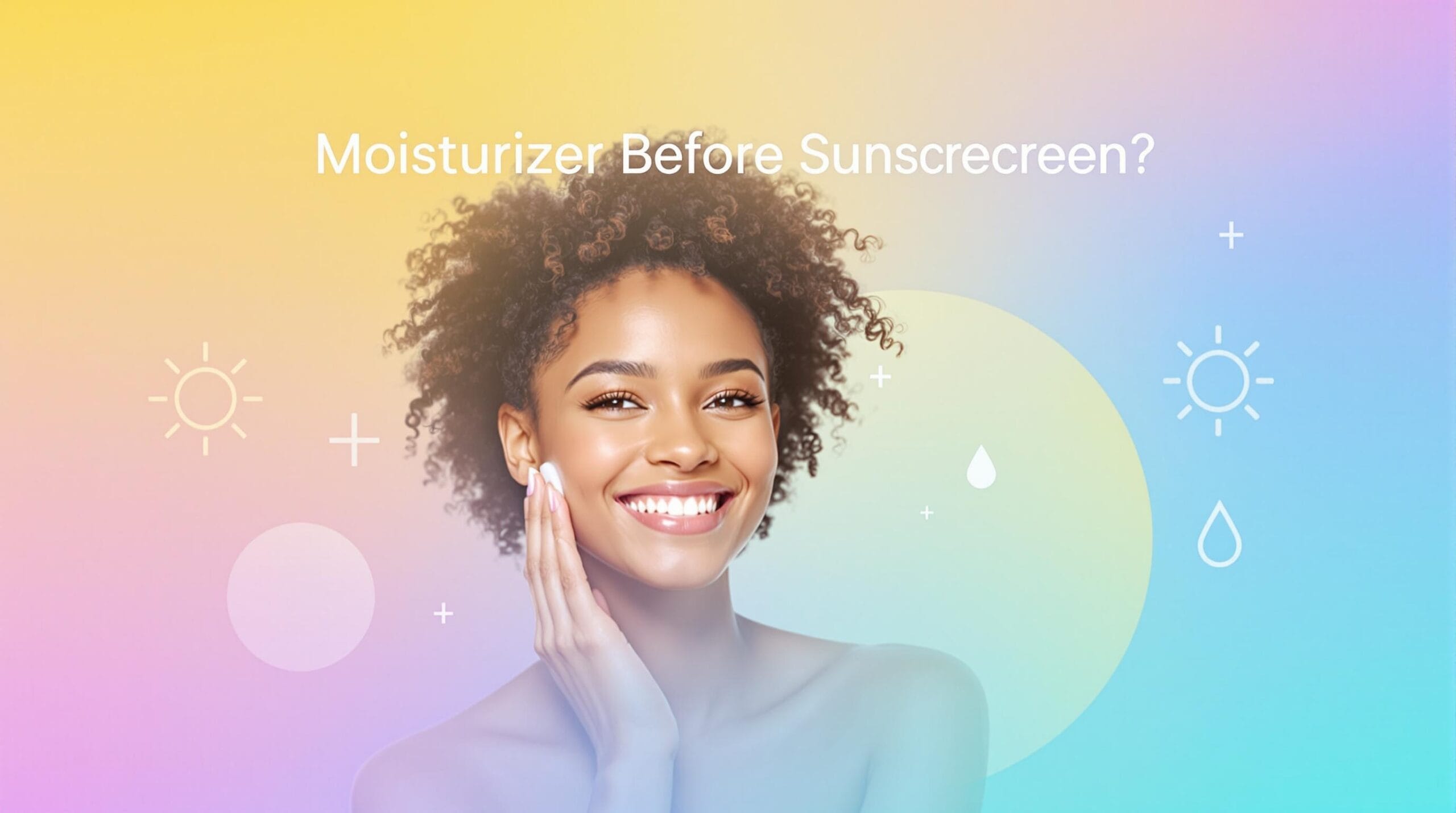
The application order of moisturizers and sunscreens sparks debate among skincare enthusiasts. This debate is crucial because using these products correctly significantly impacts skin health. Proper layering enhances the effectiveness of both, leading to hydrated skin and adequate sun protection. Many ask, “Which comes first in your beauty regimen?” Understanding this can improve your daily skincare routine.
More than just a personal choice, getting this order right ensures optimal benefits from your products. It is essential to consider how these products interact and the specific needs of your skin type. Let’s dive into whether you should apply moisturizer before sunscreen and why it matters.
Why You Should Never Skip Moisturizer!
Hydration is a cornerstone of healthy skin. Applying moisturizer before sunscreen ensures your skin stays moisturized and plump throughout the day. A good moisturizer helps improve the skin’s texture, making it appear more radiant and dewy. It enhances elasticity, giving your skin that youthful glow we all desire. Without sufficient moisture, sunscreen can feel heavy and may not apply evenly.
Moisturizers also create a barrier that can prevent dryness and irritation from environmental factors. Skipping moisturizer may lead to a dull, lifeless complexion. Thus, including a moisturizer in your routine is vital for maintaining skin health.
Surprising Myths About Moisturizers
Many people think oily skin doesn’t require moisturizer. This is false. Every skin type benefits from hydration, which can control oil levels and reduce breakouts. By addressing these myths, we emphasize that moisturizers are essential for all, regardless of skin type. Using the right product can make a significant difference in overall skin health.
The Sunscreen Secret: Why It’s Non-Negotiable
Sunscreens are crucial for protecting your skin from harmful UV rays that cause premature aging and skin damage. Daily application helps prevent conditions like melanoma and maintains an even skin tone. The long-term benefits include firmer, healthier skin. The sun’s impact does not discriminate, making sunscreen protection a must for everyone, every day.
Wearing sunscreen regularly can prevent sunspots and skin discoloration. It’s not just about sunny days; even cloudy days require sun protection. The harmful rays penetrate clouds, putting your skin at risk if you skip sunscreen. Protect your skin to keep it looking youthful and vibrant.
SPF Myths Unraveled!
Many believe that sunscreen isn’t needed on cloudy days or during winter months. This myth can lead to skin damage over time. In reality, UV rays penetrate clouds and reflect off surfaces like snow. Always apply sunscreen, regardless of weather conditions, to safeguard your skin.
To Mix or Not to Mix: The Great Application Debate
One of the most common questions is whether to apply moisturizer underneath sunscreen or mix them. Experts recommend applying moisturizer first to ensure each product performs effectively. When layered correctly, your skin reaps the full benefits of both products. Mixing may dilute the effectiveness of the sunscreen, leading to poor protection.
Consider different formulations for your skin type. For oily skin, a lightweight gel moisturizer may work best. In contrast, dry skin types should opt for creamy, hydrating options. Adjusting to your unique needs will enhance your skincare results.
How to Perfect Your Application Technique
To apply correctly, start with a cleanser and follow with your chosen moisturizer. Use a pea-sized amount and gently massage it into your skin, allowing it to absorb. Wait a few minutes before applying sunscreen to let the moisturizer settle. Next, apply sunscreen evenly and generously on all exposed skin.
Choosing the right texture also matters. Gel formulas are often more suitable for oily skin, while creams work well for drier skin types. The goal is to ensure an even application without feeling greasy or heavy.
Timing is Everything: Wait Before You Apply
Timing plays a significant role in product effectiveness. Allowing moisturizer to absorb for a few minutes before putting on sunscreen ensures maximum efficacy of both products.
The Golden Rule: Layer, Don’t Overpower!
Avoid overwhelming your skin with too many products, leading to pilling or irritation. Stick to a simple routine that layers effectively, ensuring each product has a chance to work. Look for moisturizers and sunscreens that complement each other for better performance.
Choosing products that are compatible minimizes the risk of irritation and maximizes benefits. Focus on quality over quantity in your skincare routine.
Real-Life Testing: Moisturizers vs. Direct Sunscreens
Many users report improved results when they apply these products separately. Users who follow a two-step approach often notice smoother application and better skin health. Experimenting with your skincare can help you find what works best for your skin.
Frequently Asked Questions: Spotting the Truth!
Common queries surround the use of tinted moisturizers or products labeled as “all-in-one.” While tinted moisturizers may offer some sun protection, they usually lack sufficient SPF for complete protection. Always layer an adequate sunscreen to ensure full effectiveness.
Another frequent question is whether moisturizer with SPF can replace sunscreen. While it helps, it’s not a substitute. Apply a dedicated sunscreen for robust protection.
Conclusion: Your Skincare Ritual Reimagined
Summarizing, combining moisturizer and sunscreen correctly is vital for skin health. An appropriate skincare routine leads to beautifully hydrated and protected skin. Embrace a consistent regimen that includes both products to achieve the best outcomes.
Share your experiences in the comments! Adapting these practices may help you and others improve their skincare routines.
Unbelievable Secret: Why You MUST Use Sunscreen This Winter! >>>







